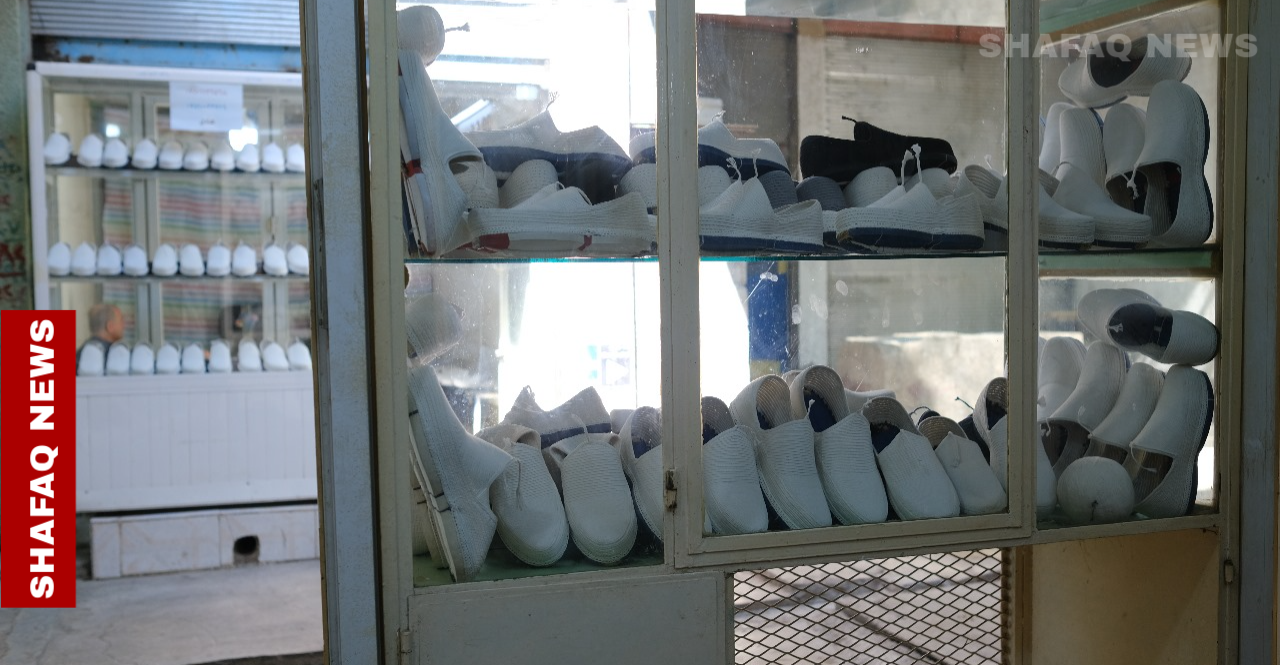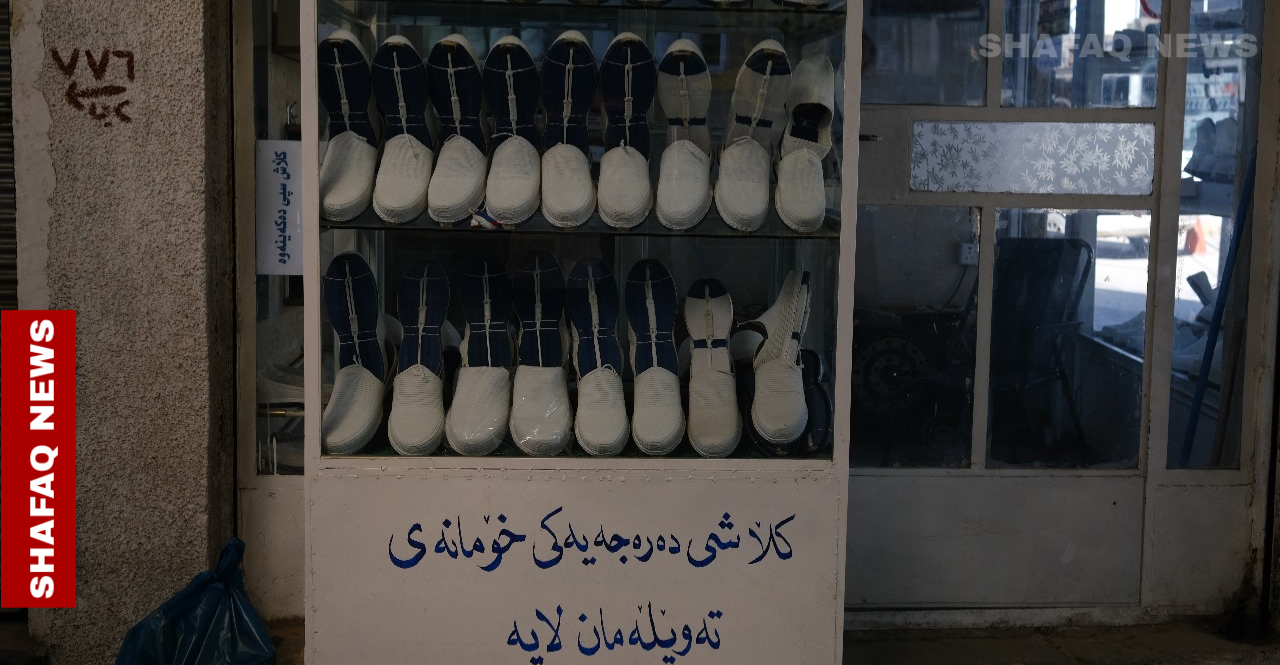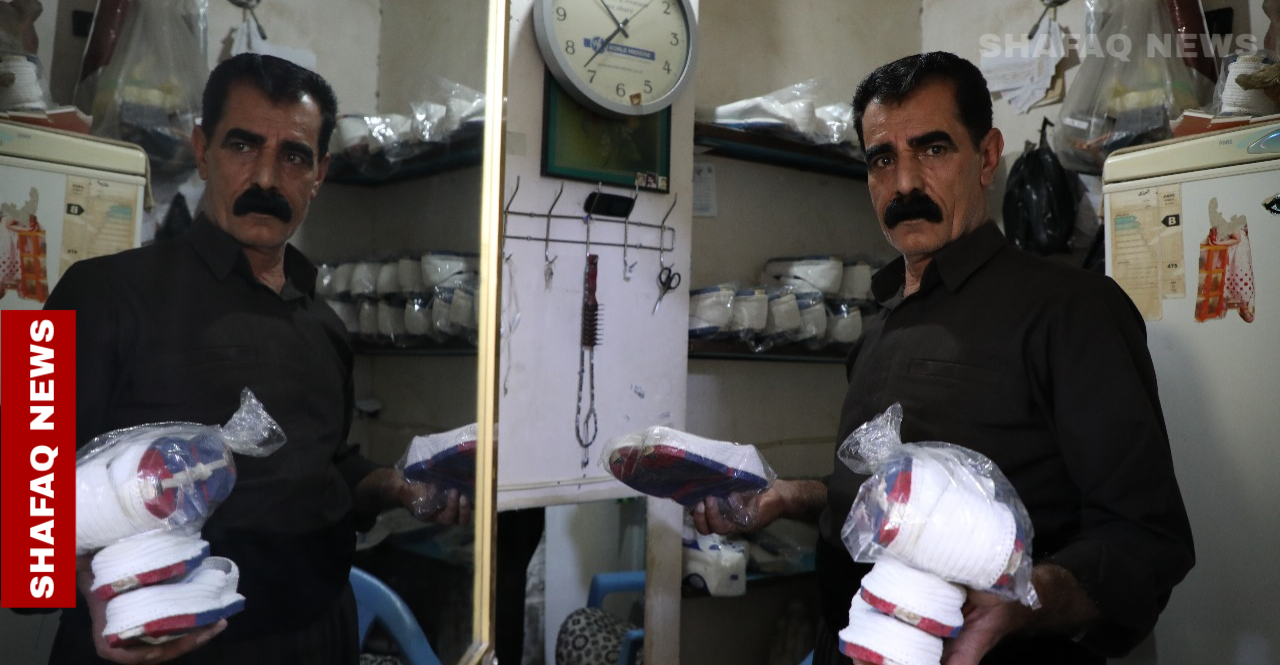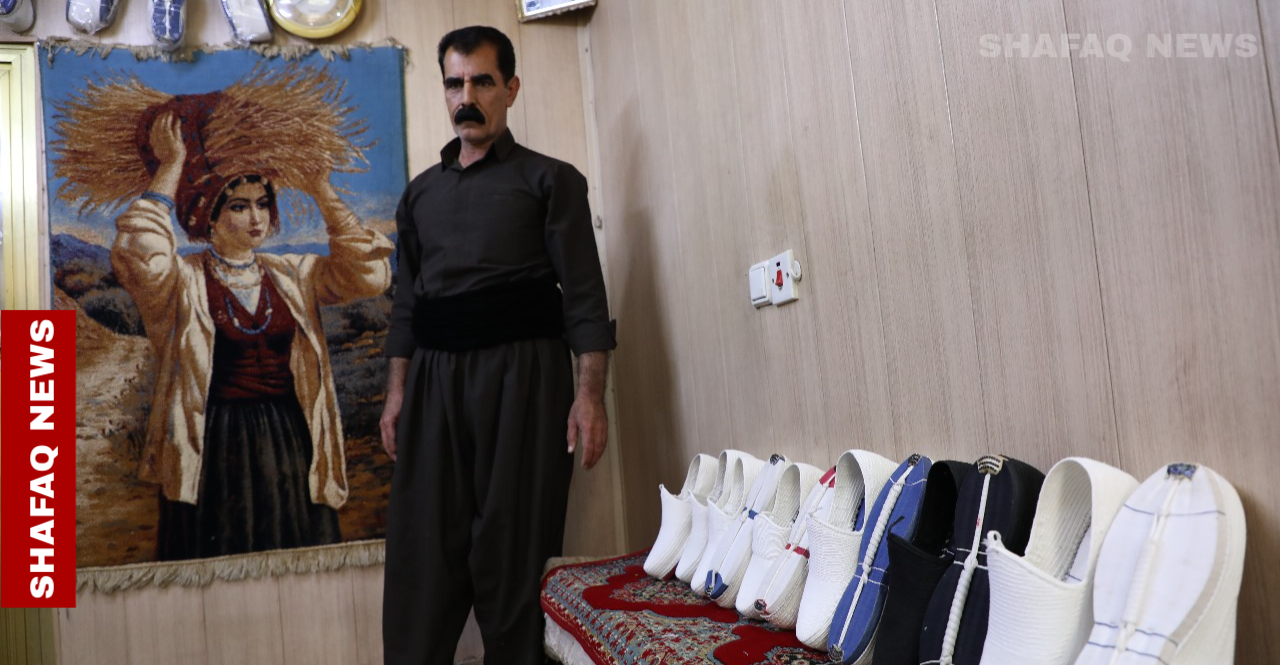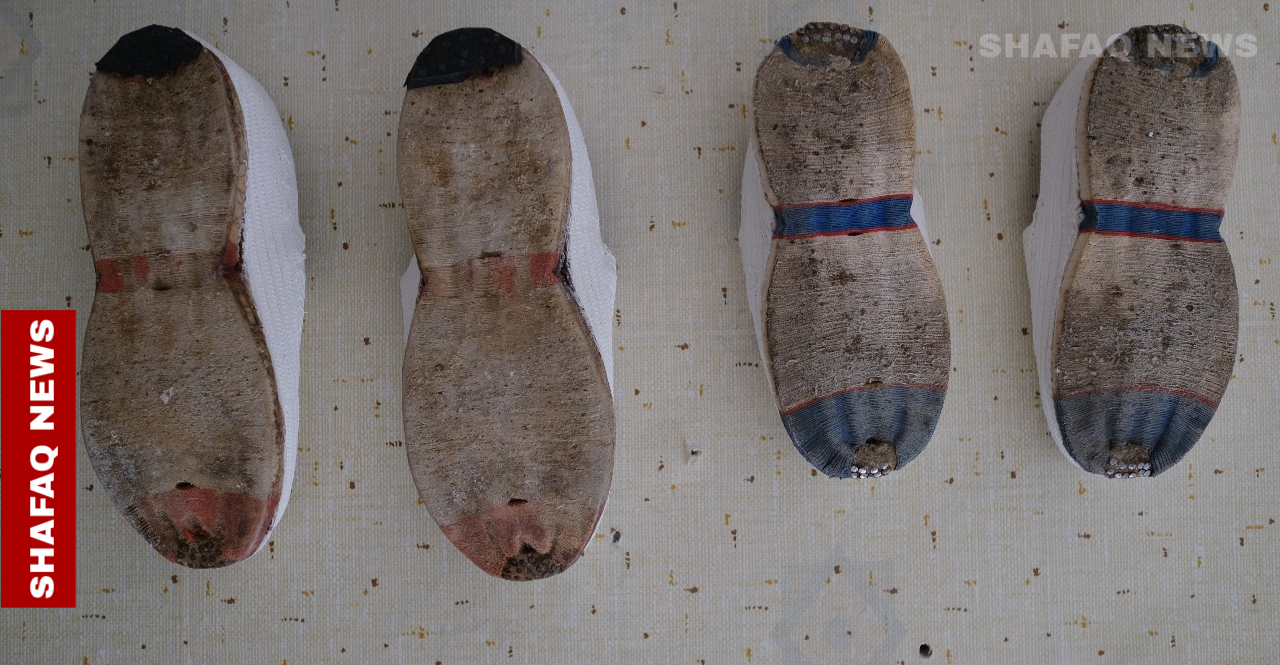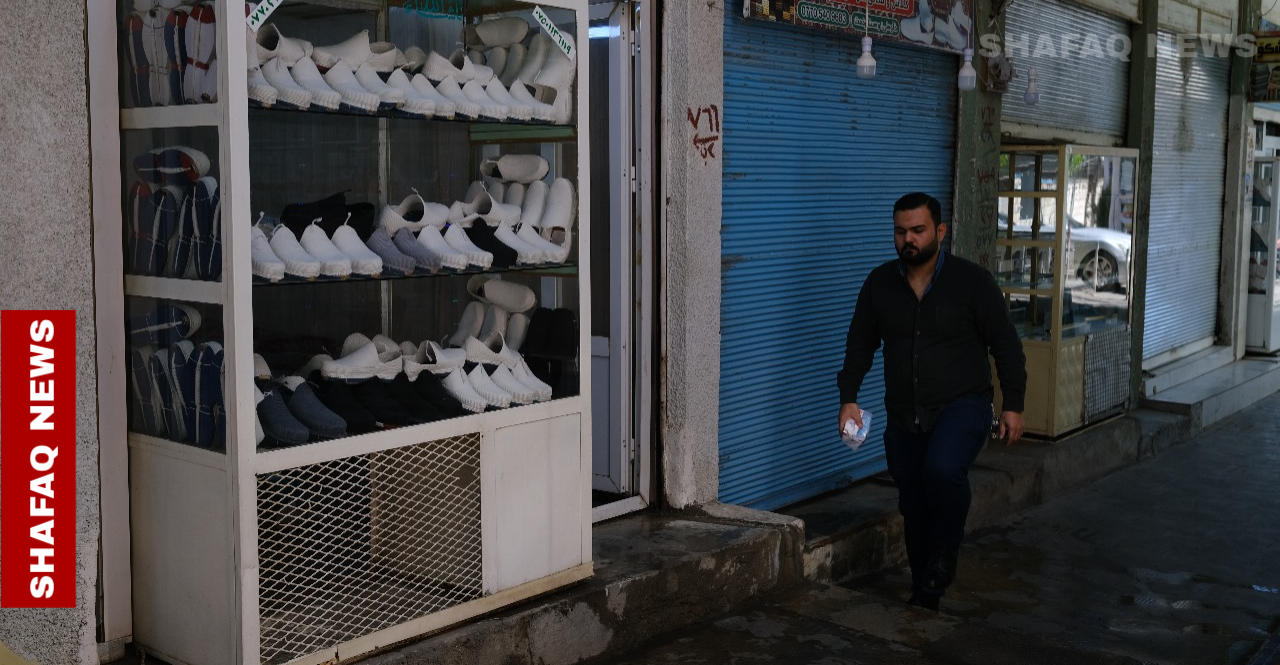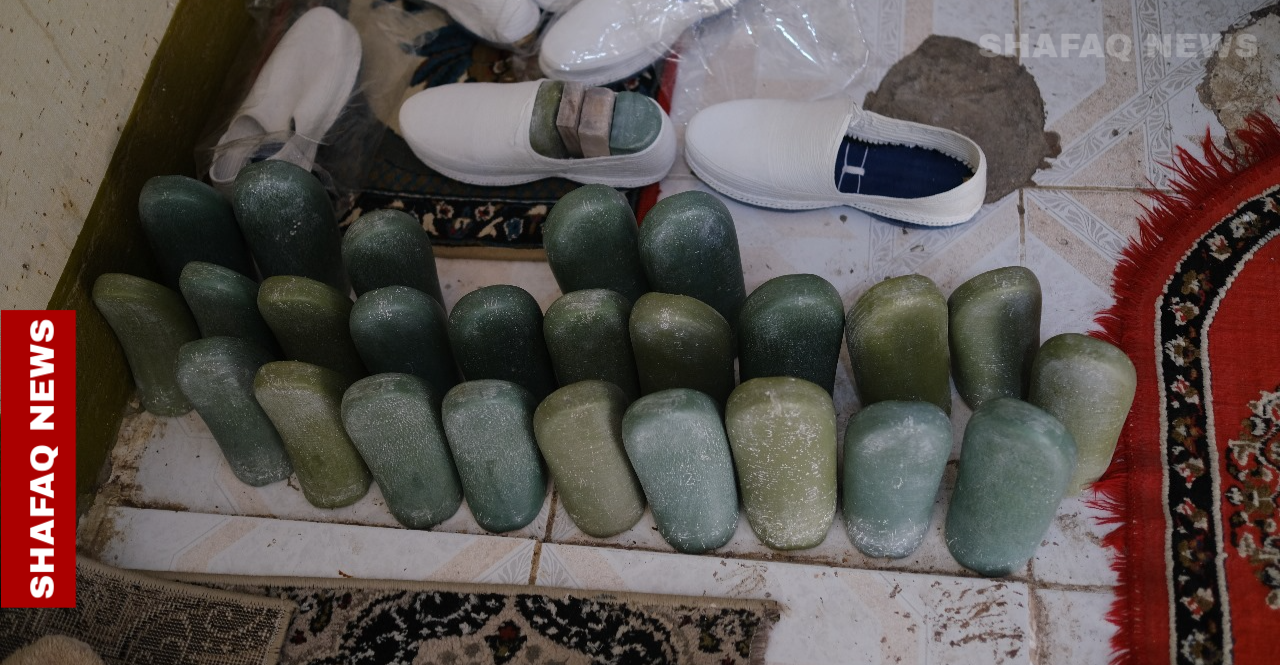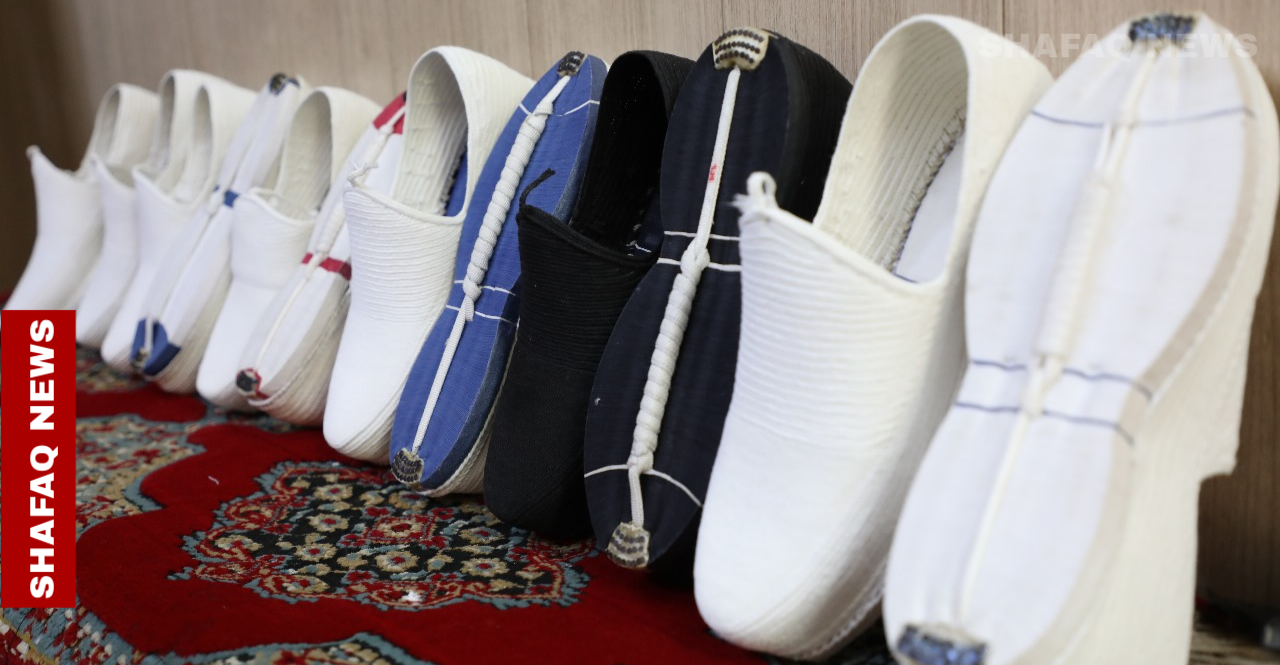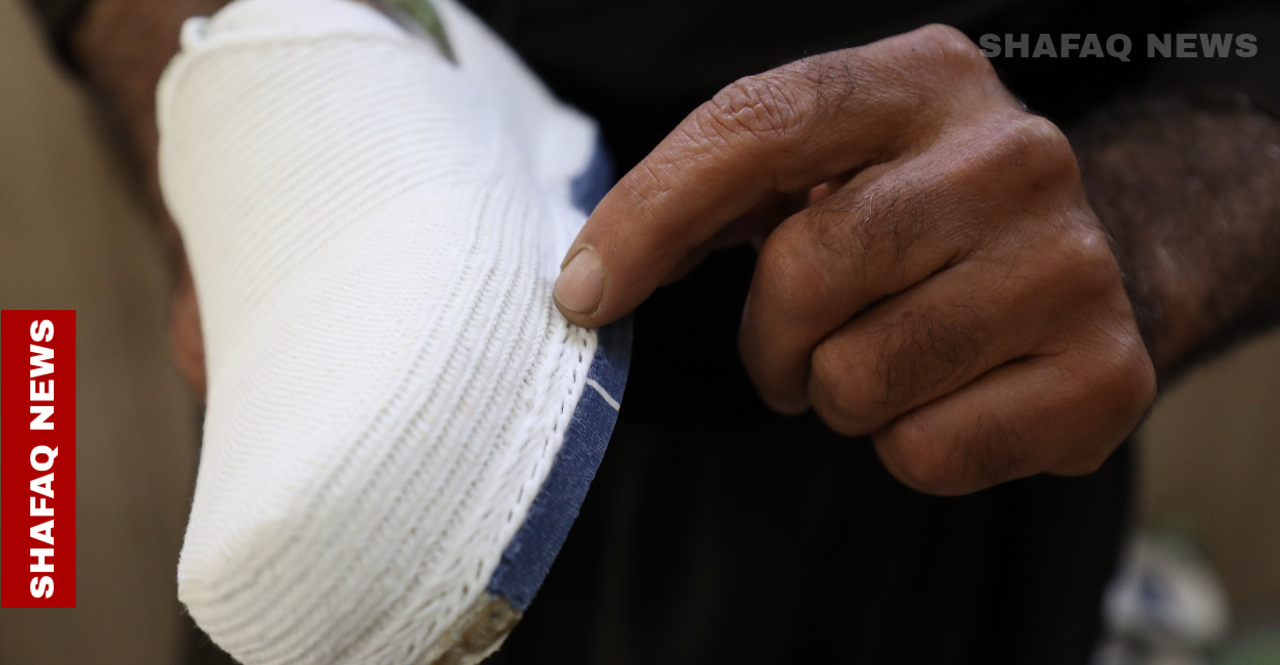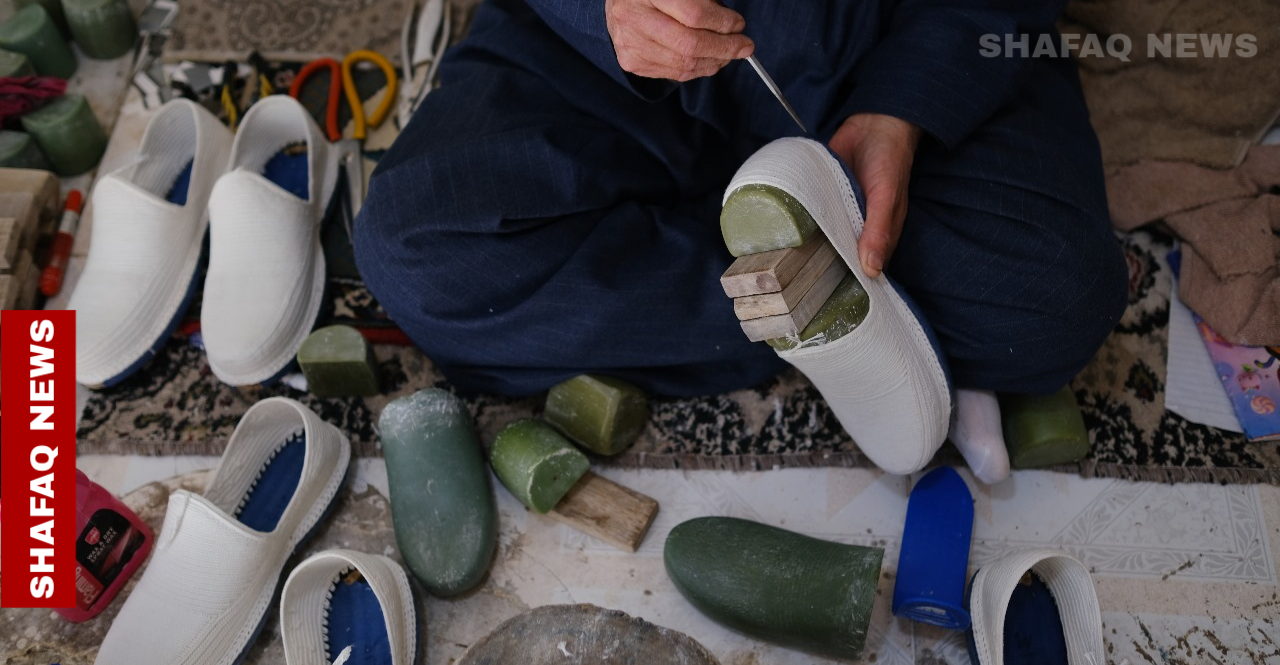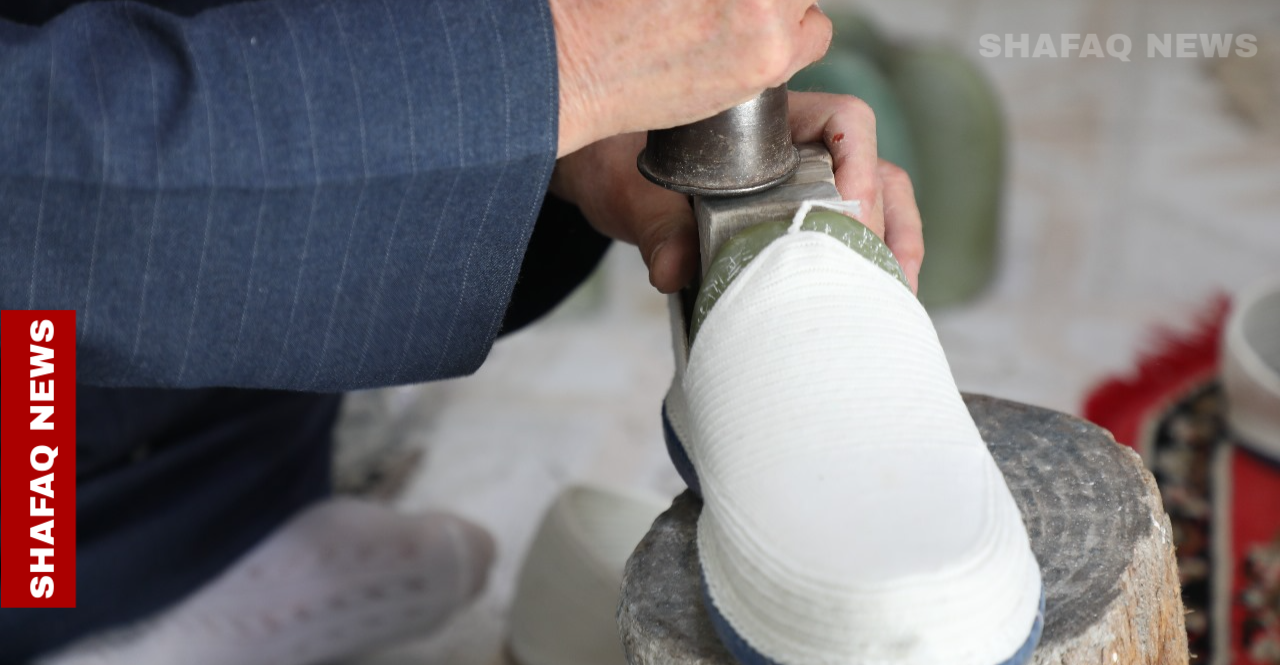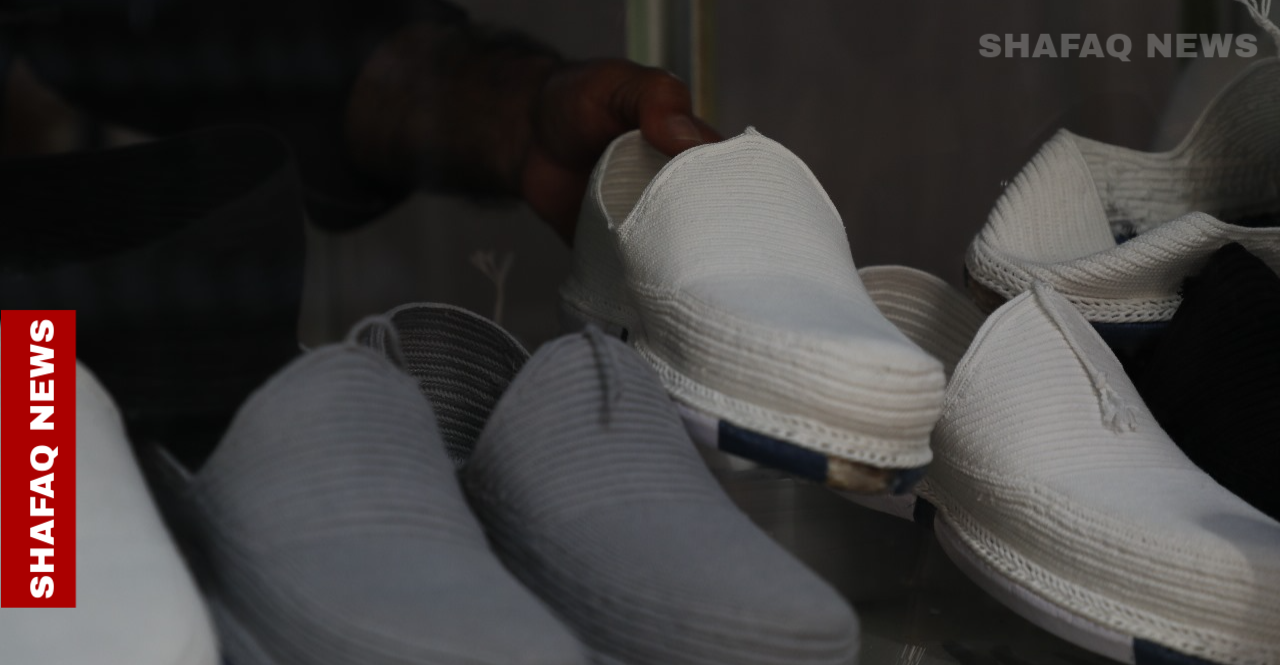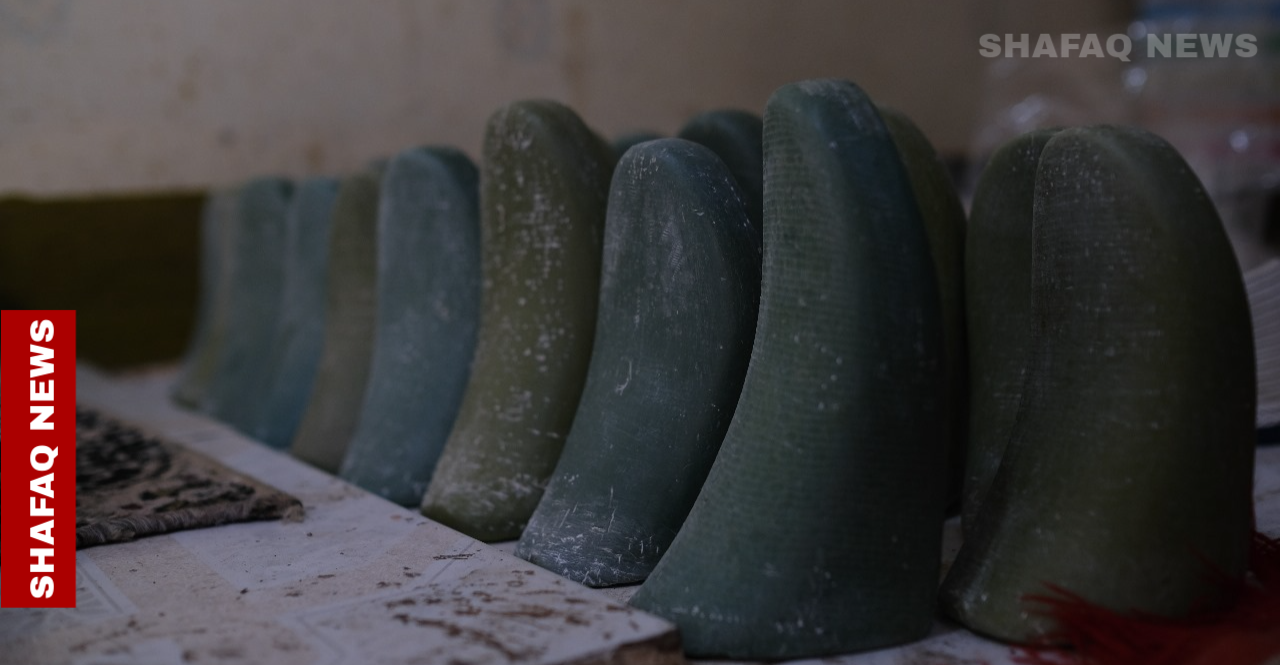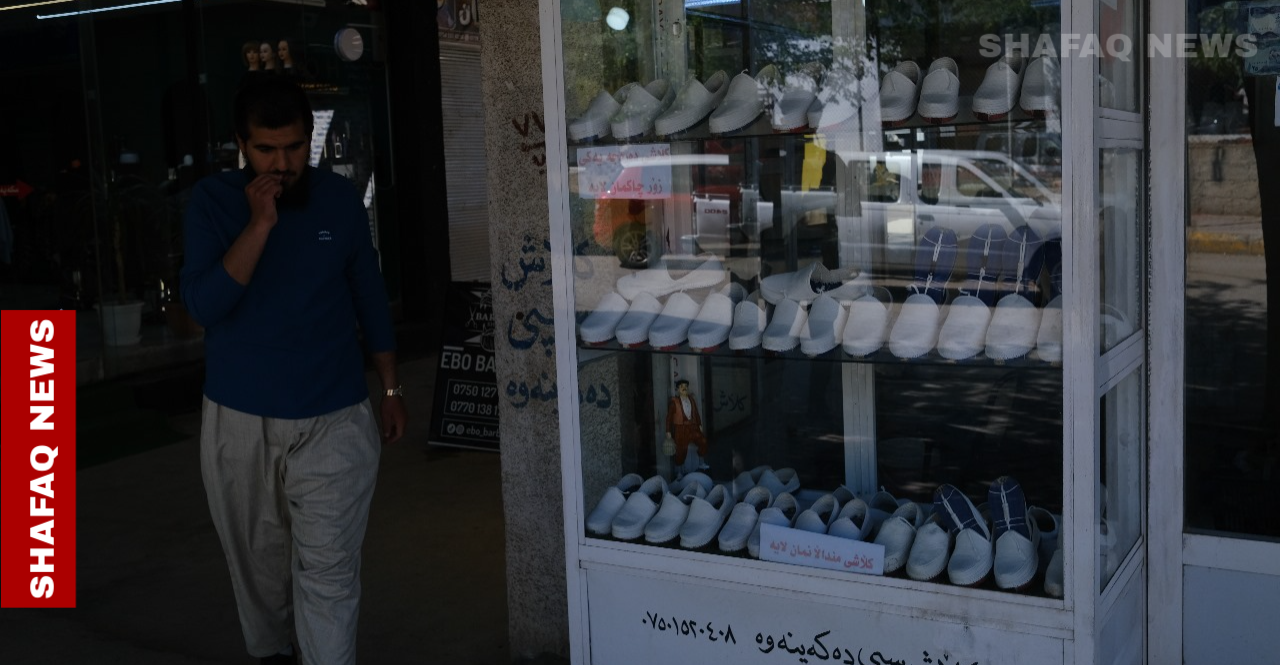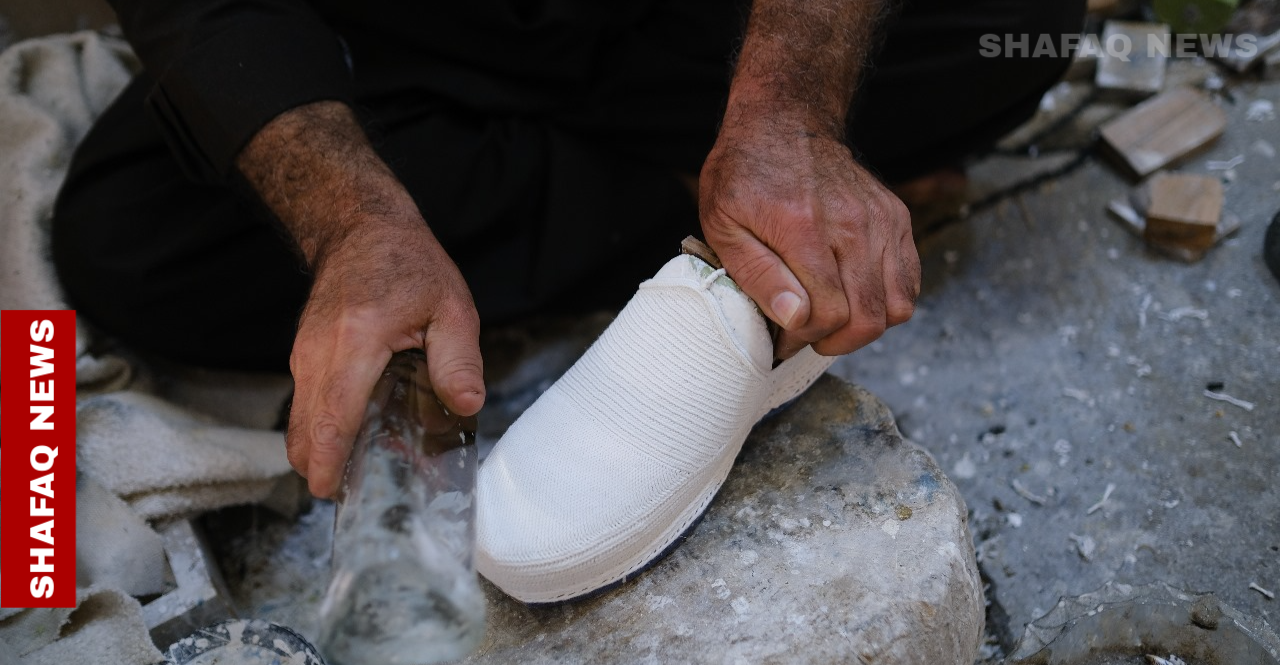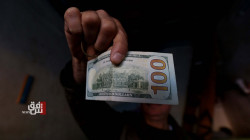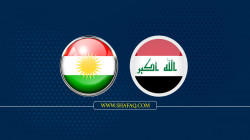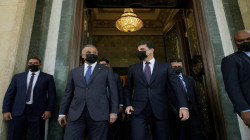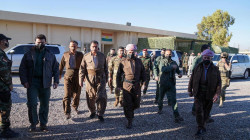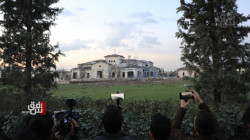Klash legacy: One man's fight to keep Kurdish tradition alive
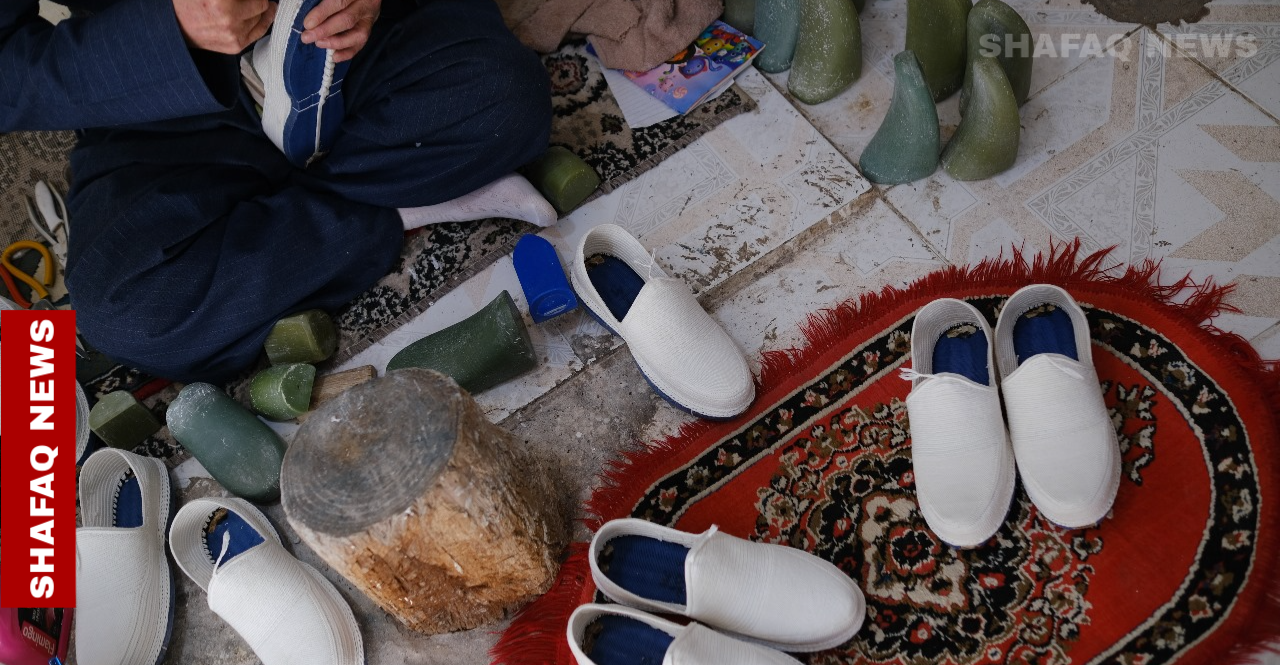
Shafaq News/ In the narrow lanes of Halabja's old bazaar, the scent of raw fabric and natural leather rises above the din of nearby spice stalls. There, seated cross-legged beside a pile of cotton and tools, 60-year-old Nawar gently threads a needle into the base of a nearly finished pair of traditional Kurdish shoes known as Klash.
"Even if I had all the money in the world, I wouldn’t leave this place," he told Shafaq News, with his eyes glinting with pride as he worked. For Nawar, shoemaking is more than a trade; it's an inheritance.
Made of cotton fabric and animal hide, Klash shoes are lightweight, breathable, and environmentally friendly. The shoes are entirely handmade, taking up to a week to produce.
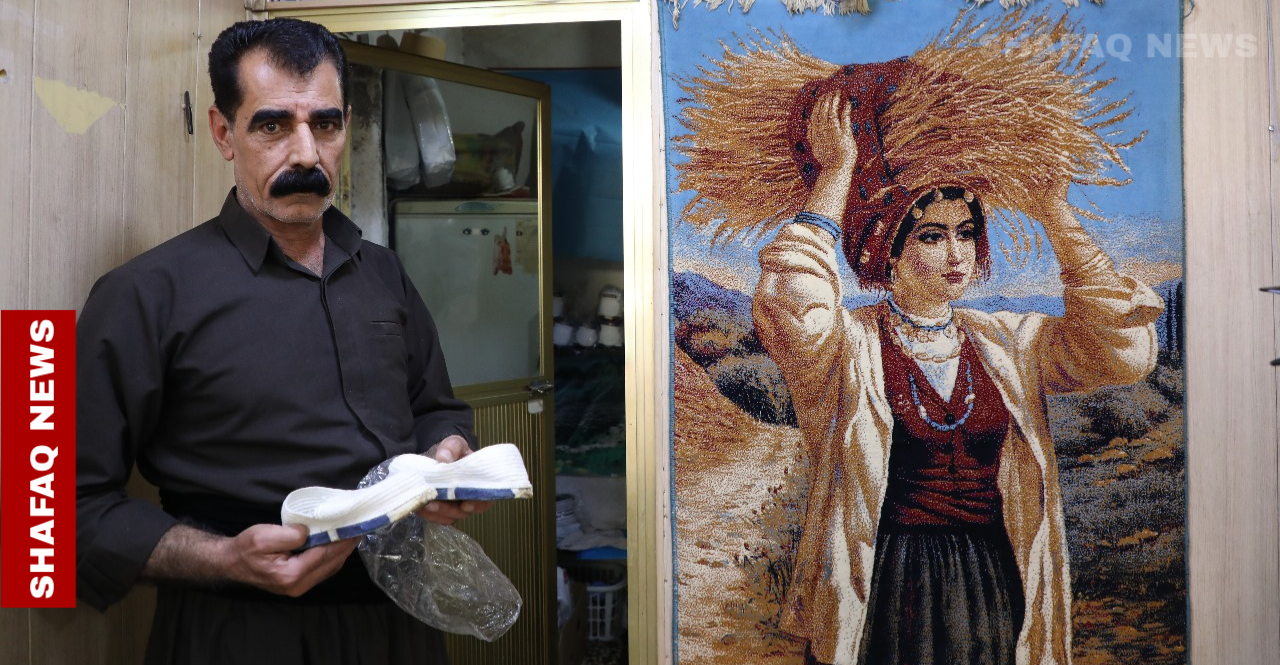
Despite the rise of modern footwear, Klash continues to hold ceremonial and cultural significance, Nawar said, noting that young Kurds don the shoes during national holidays like Newroz and Flag Day.
A single pair of Klash typically sells for between 40,000 and 120,000 Iraqi dinars (roughly $30–$90), depending on the quality of fabric, stitching, and custom design. More elaborate pairs, often ordered by Kurds abroad or gifted during festivals, can fetch up to 300,000 dinars ($210). While the price reflects the labor-intensive craftsmanship, many local artisans say it barely offsets the time and materials invested.
The industry faces other challenges: limited government support, labor shortages, and shifting consumer habits. Yet artisans continue to resist disappearance through small-scale training workshops aimed at preserving knowledge among younger generations.
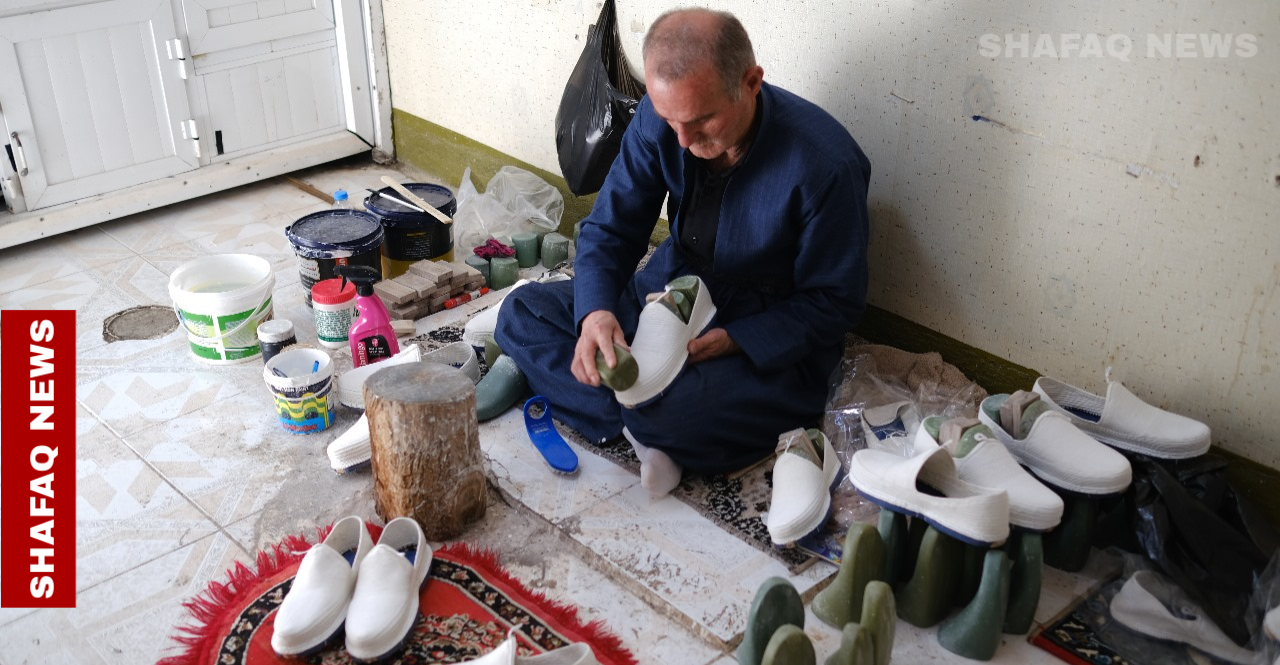
Dozens of family-run Klash workshops in Halabja have dwindled to fewer than ten, as imported alternatives, particularly from Iran, undercut local shoemakers with lower prices, flooding the market and eroding demand. "These factory shoes have no soul. This—" he gestures to the shoe in his hand, "—this carries history," Nawar stated.
In 2017, UNESCO recognized Klash shoemaking as part of Iraq's Intangible Cultural Heritage. Still, for Nawar and others like him, the true recognition lies in the quiet moments: a stitch pulled tight, a customer who waits weeks for a custom order, and the knowledge that every pair carries a story.
“One of my customers in Europe asked for a pair just to remember the scent of his old home,” Nawar recalled with a soft smile. “This is not just a shoe. It’s memory stitched into fabric.”
